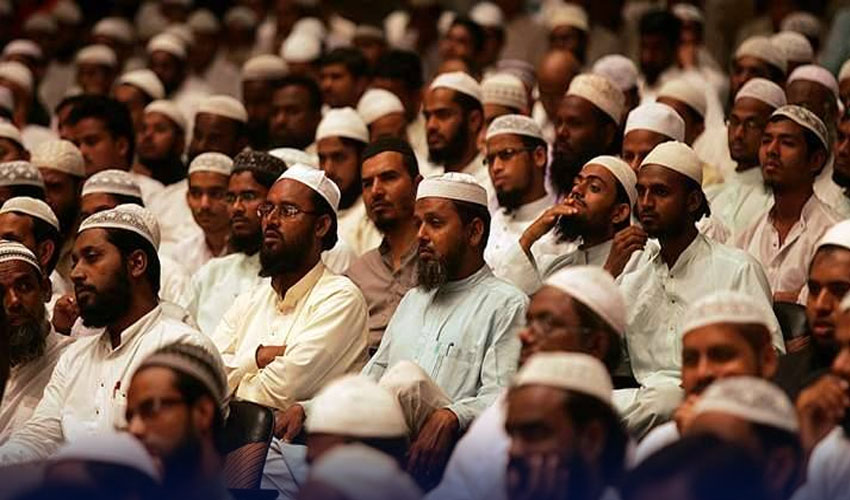NEW DELHI: After the approval of the controversial Waqf Amendment Bill introduced by the Modi government from Lok Sabha, protests have erupted across India.
Just hours after the bill was passed, people in Kolkata, Ranchi, Ahmedabad, Manipur, Jamui, and other cities took to the streets, protesting against the government.
According to Indian media, a large number of people protested against the bill on the streets of Ahmedabad, where police used force to disperse the demonstrators and arrested over 50 individuals. Massive protests also took place in Kolkata, where demonstrators chanted slogans like “Take back the Waqf Bill.”
In Ranchi, outside a mosque, protesters held banners and demanded that the amendments in the bill would be affecting their religious and legal rights. They said the government was attempting to seize minority Waqf properties, which they found unacceptable.
Indian media reported that the largest protest took place in the northeastern state of Manipur, where people rejected the controversial bill and strongly criticized the Modi government. According to reports, Manipur has become a stronghold of distrust due to Modi’s anti-Muslim policies.
In Jamui, Bihar, hundreds of people protested outside the Raza Nagar Gausia Mosque. The protesters chanted slogans against Chief Minister Nitish Kumar and other BJP leaders, announcing they would vote against the BJP in the upcoming elections and call for a boycott.
In Uttar Pradesh, police were on high alert due to the threat of protests, while petitions against the Waqf Amendment Bill have been filed in the Indian Supreme Court and various High Courts.
Opposition parties, Muslim organizations, and human rights bodies have called the bill a move against minorities. They argue that the law’s purpose was s to weaken Muslim Waqf institutions and seize their properties.
Experts say that Modi’s anti-Muslim policies are increasingly becoming a serious threat to India’s secular identity, with the Waqf Bill being the latest example.


Comments are closed.